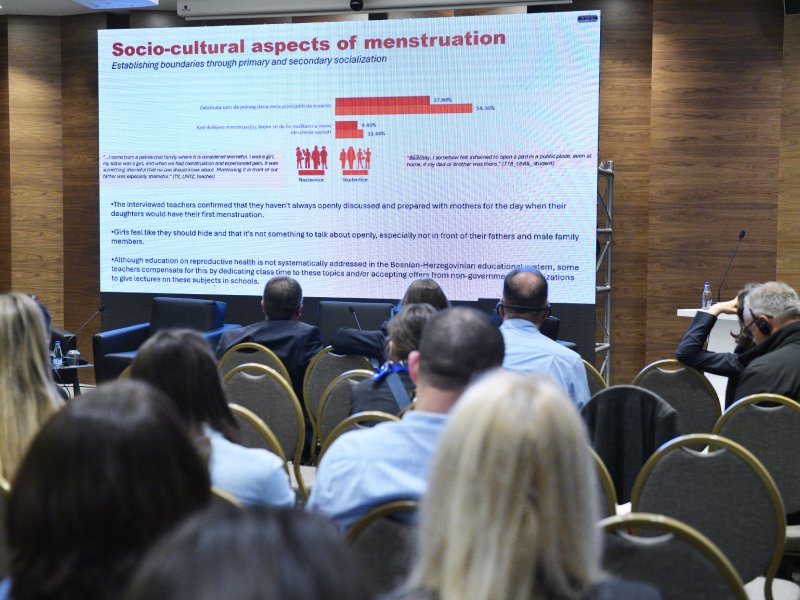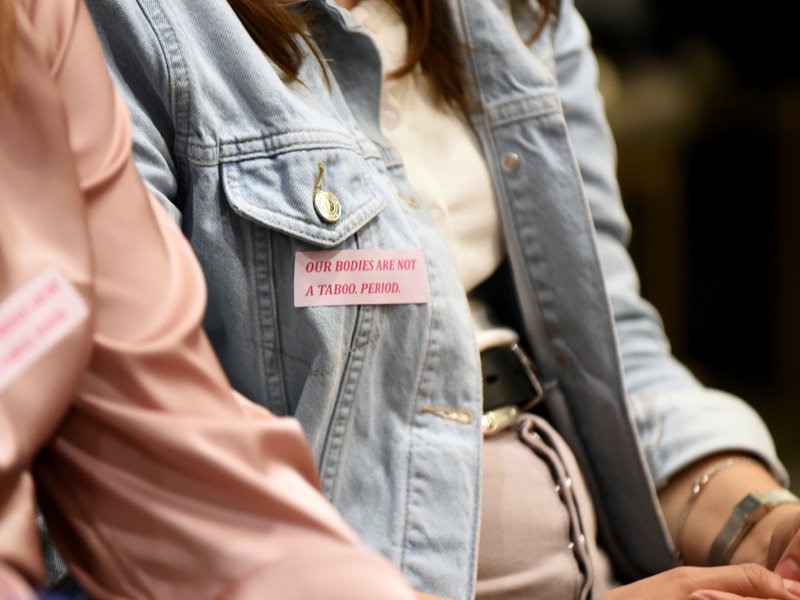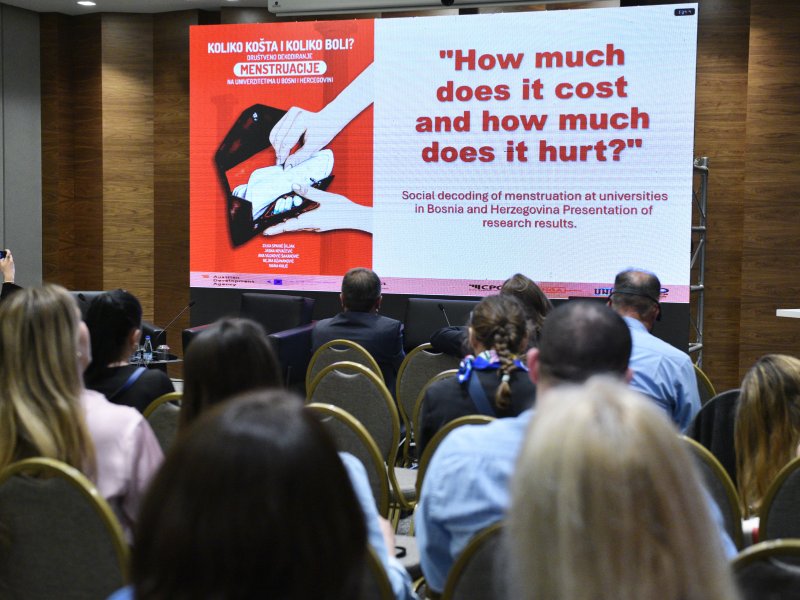On May 28, 2024, the conference ‘Our Bodies Are Not a Taboo. Period.’ was held in Pristina, Kosovo, bringing together key stakeholders from the region. The conference attracted a diverse group of participants, including representatives from institutions, national and municipal authorities, international organizations, civil society, and the private sector. The focus of the conference was on discussing various aspects of menstrual justice and menstrual hygiene, particularly in relation to education, justice, and the economy.
Ivana Kulić, project coordinator at the TPO Foundation, presented the results of the MENGA research. The MENGA research deals with the financial and social impacts of menstruation on female students and staff at universities in Bosnia and Herzegovina, and it is the first study of its kind conducted in Bosnia and Herzegovina. The research findings reveal numerous aspects of menstrual health and its perception in society. The first part of the research addresses the socio-cultural aspect of menstruation in Bosnian society, where shame and embarrassment related to this phenomenon are very prominent. As many as 58.51% of female students in this study reported hiding menstrual supplies when going to the toilet so that no one would see them, which corresponds to the percentage of female teachers who also hide menstrual supplies when going to the toilet (62.20%).

The research shows that menstrual poverty remains a prevalent issue affecting the lives of many individuals. Soap and toilet paper, which are essential for proper personal and intimate hygiene, are often unavailable in university restrooms. A total of 33.48% of female students do not have access to soap, 44.92% do not have access to toilet paper, and 66.09% do not have access to hot running water in university restrooms. Through detailed analyses and interpretations, the researchers emphasized the critical need to raise awareness about menstrual health issues. They also provided specific recommendations for improving the situation, aiming to influence policies and societal attitudes.

The conference served as a crucial platform for conducting meaningful discussions about menstrual justice and hygiene. It underscored the importance of collaborative efforts from various sectors to effectively address menstrual health issues. The insights and recommendations from the MENGA research are expected to play a vital role in shaping future initiatives and policies aimed at combating menstrual poverty and promoting menstrual justice across the region.





















